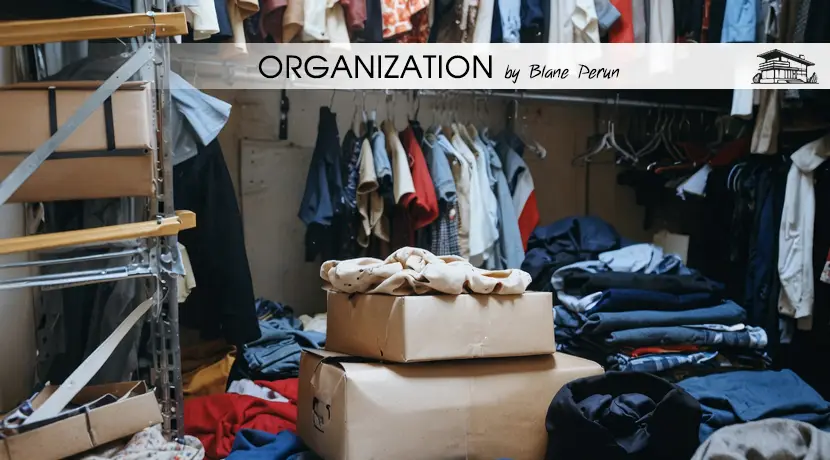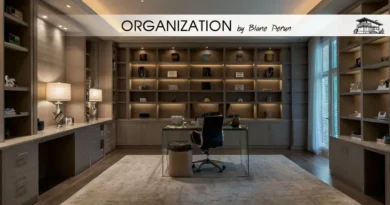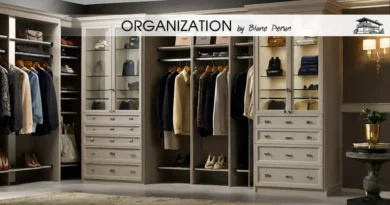Organizational Stressors
Navigating the Chaos: A Guide to Overcoming Home Organizational Stressors
In the hustle and bustle of daily life, our homes are supposed to be sanctuaries of peace and order. Yet, for many, this ideal is far from reality. The concept of Home Organizational Stressors has become increasingly relevant as we juggle work, family, and personal time within the confines of our living spaces. These stressors are not just about the clutter on your coffee table or the dishes piling up in the sink; they delve deeper into how our environment impacts our mental and physical well-being.

The Psychological Impact of Disorganization
Clutter’s Toll on Mental Health
It’s not just about tripping over shoes in the hallway. The clutter in our homes can lead to significant psychological distress. Studies have shown a direct correlation between cluttered environments and increased levels of cortisol, a stress hormone. This hormonal imbalance can lead to feelings of anxiety, depression, and even sleep disturbances. The chaos of a disorganized space mirrors the chaos within, making it challenging to find peace and tranquility in what should be our refuge.
Organizational Systems and Cognitive Function
A well-organized home isn’t just aesthetically pleasing; it has profound implications for our cognitive functions. Neuroscientific research suggests that organized spaces can enhance our ability to focus, process information, and remember tasks. The absence of such order, a prime example of Home Organizational Stressors, can lead to cognitive overload, where the brain is so bombarded with stimuli that it struggles to operate efficiently. This cognitive overload can result in decreased productivity and an increased propensity for procrastination.
The Physical Dimensions of Home Disarray
Health Hazards in a Disorganized Home
Beyond the mental impact, a disorganized home can pose real physical health hazards. Dust, mold, and other allergens often accumulate in cluttered spaces, exacerbating respiratory issues and potentially leading to more severe health complications. Moreover, the physical act of navigating through cluttered spaces can lead to accidents and injuries, from minor trips and falls to more serious incidents.
The Ergonomics of Home Organization
Ergonomics isn’t just for the workplace. How your home is organized can significantly affect your physical health, particularly regarding musculoskeletal disorders. An ergonomically designed living space considers furniture placement, storage solutions, and daily routines to minimize physical strain and enhance comfort. Failure to address these aspects can turn Home Organizational Stressors into catalysts for chronic pain and discomfort.
Societal Influences on Home Organization
The Role of Consumer Culture
In today’s consumer-driven society, the accumulation of possessions is often seen as a measure of success. This cultural norm directly contributes to Home Organizational Stressors, as the influx of items can overwhelm our living spaces and our ability to keep them organized. The challenge lies in balancing the desire for material goods with the practicality of maintaining an orderly home, a task that requires conscious effort and often a shift in mindset.
Social Media and Unrealistic Home Standards
The rise of social media has brought about a new wave of pressure regarding how our homes should look. Platforms like Instagram and Pinterest are flooded with images of immaculate, beautifully organized spaces, setting unrealistic standards for the average person. These images can exacerbate Home Organizational Stressors by creating a gap between expectation and reality, leading to dissatisfaction and stress when our homes don’t measure up.

Frequently Asked Questions
What are Home Organizational Stressors and how do they affect us?
Home Organizational Stressors refer to the various elements within our living environments that can lead to stress due to disorganization, clutter, or inefficiency. These stressors can negatively impact our mental health by increasing anxiety and reducing our ability to focus, and they can also pose physical health risks through increased exposure to allergens and increased likelihood of accidents.
How can clutter in the home impact mental health?
Clutter can significantly impact mental health by increasing stress levels, leading to feelings of anxiety and overwhelm. A cluttered environment can make it difficult to relax or find things, contributing to a sense of chaos and making it harder to focus on tasks, which can exacerbate feelings of stress and frustration.
Can an organized home improve cognitive function?
Yes, an organized home can positively impact cognitive function. A clutter-free and well-organized environment can reduce distractions, making it easier to focus and process information. This can lead to improved productivity, better problem-solving abilities, and a more efficient use of time.
What are the physical health risks associated with a disorganized home?
A disorganized home can lead to physical health risks such as increased exposure to dust and allergens, contributing to respiratory problems. Additionally, cluttered spaces can increase the risk of accidents, such as trips and falls, which can lead to injuries.
How does consumer culture contribute to Home Organizational Stressors?
Consumer culture encourages the accumulation of more possessions, often leading to clutter and disorganization in the home. The desire to keep up with societal standards of success by acquiring material goods can overwhelm our living spaces, making it challenging to maintain order and contributing to stress related to disorganization.





